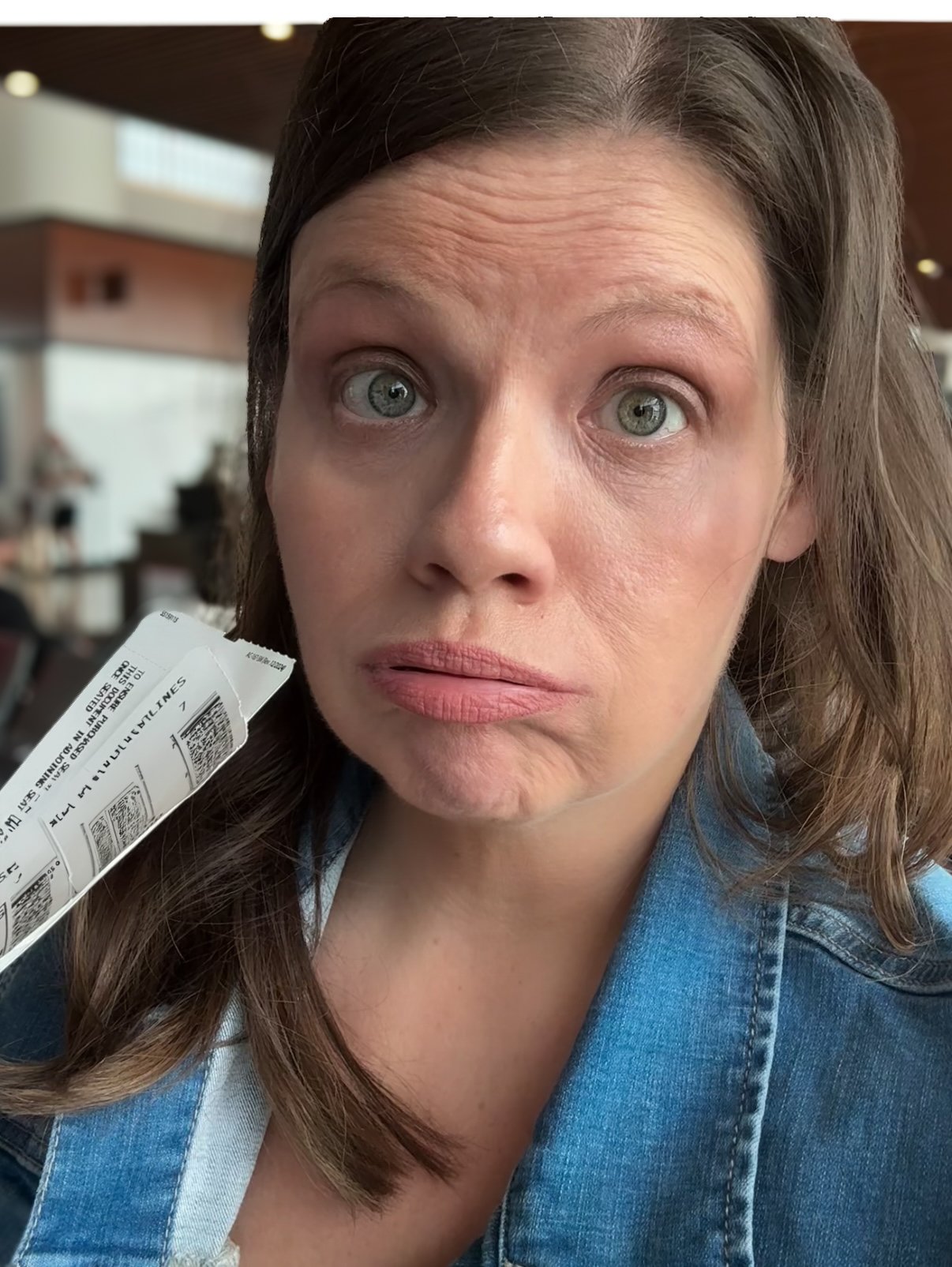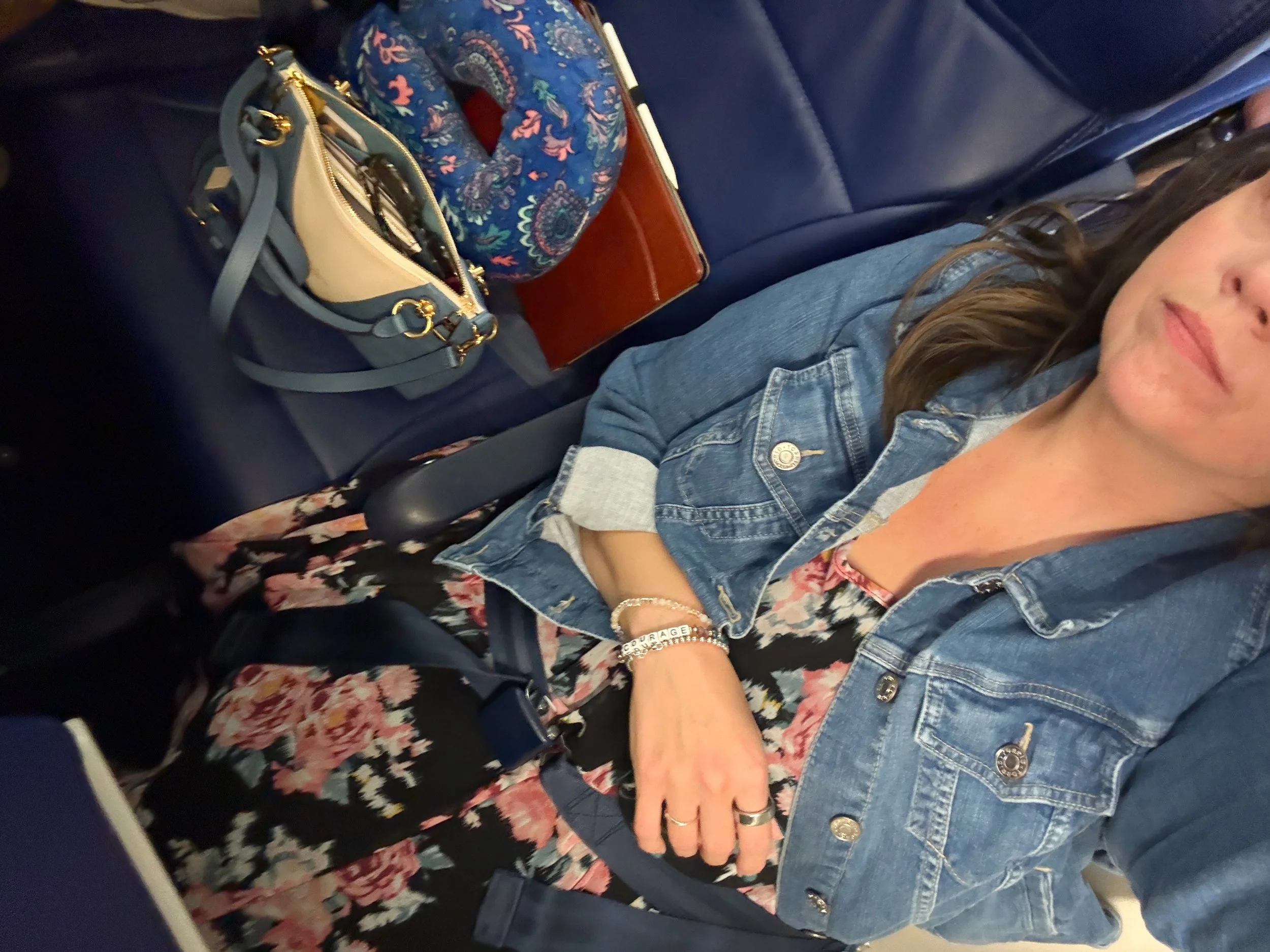My Life Has Changed, But Southwest Airlines’ Bias Has Not - It’s Time to Do Better
More than a decade ago, I was shamed at a Southwest Airlines gate, and the story played a role in shaping my identity. I’d lost over 100 pounds at the time and was starting to feel good in my skin—until a gate agent looked at me and said, in front of a crowd, that I was “too fat to fly” in one seat. When I shared video from that moment on my blog and the story went viral, it felt devastating.
After Southwest apologized and asked me to give them another chance, I went on a few flights before it happened again. I eventually sued Southwest in federal court—not for money. I literally did not ask for a dime; I wanted them to create change. I knew the case would be dismissed, and it was, but I hoped it would raise awareness. And it did. My experience and voice helped influence changes in their "Customers of Size" policy and informed other airlines’ policies as well.
And recently I found myself in a painfully familiar situation at a Southwest ticket counter, but this time they weren’t calling me too fat.
I had purchased two seats for my flight—something I’ve done for years when flying on Southwest to ensure I don’t have issues at check-in or with fellow passengers, especially when flights are full. While paying for the second seat is not currently required (like it will be in 2026), I’ve learned it’s the only way to avoid issues the day of travel.
When I got to the airport a couple weeks ago, I learned that they looked at me and canceled my second seat without my permission. They actually erroneously canceled my primary seat, so I wouldn’t have been permitted to board even if I had opted to cram myself into one seat. That left me with no reservation and less than 40 minutes until boarding.
Trying to sort it out quickly to make my flight, I asked to speak to a gate supervisor who looked at me and made a snap judgment based on my body.
She said almost word-for-word what was said to me over a decade ago. Back then, he said, “look at you, you’re obviously too fat to fly in one seat” and she said, “well, look at you. You clearly don’t need an extra seat.”
And here’s why that’s a problem: Yes, I weigh significantly less than I did the first time I was told I was too fat to fly in one seat. I’m getting physically close to only needing one seat, and I’m doing the work to ensure that my emotions can keep up with my physical progress. But I haven’t come far enough that gate agents will share a consensus on my ability to fly in one seat. I’m also a paying customer with autonomy to make decisions about my needs. They originally allowed the travel agency to book the second seat, like they have for over 20 others flights since I started traveling more frequently for work a couple years ago.
Ultimately, Southwest allowed the tickets to be rebooked last minute, which added several hundred dollars to the cost of the same flight.
And here’s why that matters - starting in January 2026, Southwest is implementing a new policy that formalizes this stigmatizing and demoralizing experience. If you need more than one seat and haven’t booked it ahead of time, you may be forced to buy a second one at the gate—at whatever price is available.
But how will you know if you’ll need to purchase an extra seat?
Here’s a snippet from their website:
“The armrest is considered to be the definitive boundary between seats; you may review information about the width of Passenger seats. In addition, Southwest® may determine, in its sole discretion, that an additional seat is necessary for safety purposes.”
In addition to being stigmatizing and discriminatory, it’s also subjective, it’s inconsistent, and it reinforces the idea that certain bodies are a problem without specifically stating whose bodies are the problem. It gives too much power to folks at the ticket counters and gates who aren’t trained in bias awareness, trauma-informed communication, or how to navigate sensitive situations with dignity and respect.
I'm not the naive girl who defined herself by other people’s vitriolic opinions when that story went viral anymore. I’m Dr. Kenlie Fite—a population scientist, an expert in public health, behavioral science and weight stigma, and someone who believes that every traveler deserves respect, transparency and dignity, regardless of their size.
So, Southwest, please take a hard look at what this policy really says to your passengers. If your mission is “to provide the traveling public with low fares and great customer service,” you need to take another look at your systemic bias toward the paying customers you’re there to serve.
All passengers deserve to fly without shame, emotional stress, or judgment, which means you all need to realign and at least make your biased “Customer of Size” policy measurable.
We can—and must—do better.





